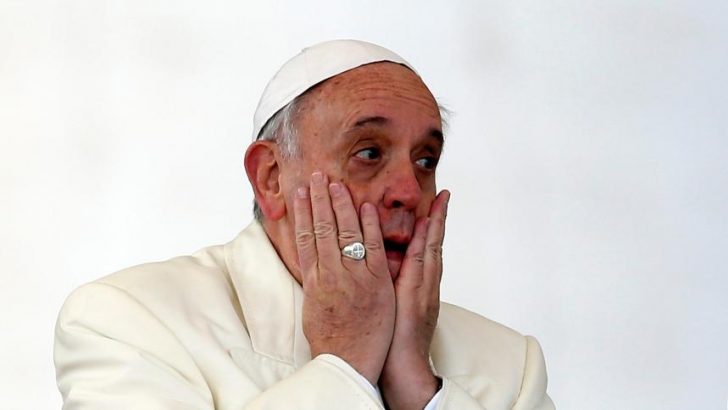“The excitement of discovering the intellectual wealth of the Faith has been replaced by a frustration with Catholicism”, writes Maolsheachlann Ó Ceallaigh
Maolsheachlann Ó Ceallaigh
Here is a scenario I have often encountered. I open a Catholic newspaper or magazine, or I log onto a Catholic website. The title of the article that looks out at me is ‘Getting Pope Francis wrong’, ‘Is Pope Francis a Liberal?’ or some such title.
I glance down the first few paragraphs. The writer gives us a potted history of media reaction to Pope Francis’s election, particularly the hope that he would revolutionise Catholicism. He quotes an American talk radio host who describes the Pope as a Marxist. He then proffers a list of rather daring quotations, first telling us that they come from Pope Francis, then revealing they were in fact written by Pope Benedict XVI.
The writer goes on to criticise pundits of both right and left for failing to understand that the current Pope, just like the last one, is neither ‘liberal’ nor ‘conservative’, but simply Catholic.
Or I presume that’s what it says, because at this point I have stopped reading. You see, I have read this article before.
I have also read the article lambasting the New Atheists for their fundamentalism and intolerance. And the article in which a feminist describes how having children of her own made her appreciate the reality of gender differences. And the article recounting how Mother Theresa and the Little Flower, along with other great saints, went through a ‘dark night of the soul’ but found a deeper faith in the midst of such darkness.
I have read all these articles, and I have seen similar segments on Catholic TV programmes. I have only been practising (and learning about) my faith for some six years, and all these themes are beyond familiar to me. The excitement of discovering the intellectual wealth of the Faith has been replaced by a frustration with Catholicism 101.
Well, you might suggest, dig deeper. But here we hit a problem.
Deep waters
I have discovered that there is very little (if any) middle-ground between Catholicism 101 and the deep waters of the Faith – between the introductory book on Aquinas to the dense journals of scholarly Aquinas studies, between the magazine article on the Fathers of the Church and their actual works (written in a style extremely foreign to the 21st-Century reader), between the broad-strokes lecture on Catholic history to the staggering detail of a two-thousand year, inter-continental narrative.
Let’s be honest. To study Catholic theology or Church history or Bible studies, at a serious level, requires the sort of commitment (of time and energy) that people usually reserve for their college studies or professional work.
For ordinary lay Catholics, with jobs and families and studies of their own to pursue, such commitment might just be possible – over years and sacrificing every moment of free time. Who wants that?
Maolsheachlann Ó Ceallaigh is a blogger at irishpapist.blogspot.ie
Carving new space: I think it is high time we carve out a territory of Catholic discourse between Catholic 101 and specialist, academic studies. This is a task that concerns Catholic editors (print, broadcast, and web), Catholic intellectuals and academics, Catholic book publishers, Catholic bloggers, Catholic study groups, and every other Catholic who takes more than a casual interest in the rich intellectual, historical and artistic heritage of their Faith. As the letter to the Hebrews tell us: “Let us leave behind us then all the elementary teaching about Christ and go on to its completion, without going over the fundamental doctrines again.” Amen!
Saints’ lives
I have a similar problem with the lives of the saints. I love Bernadette Soubirous, John Paul II, and Francis of Assisi as much as anybody else does. But the Church has canonised thousands of holy men and women. Why do we hear so little about most of them? Obviously, there are very good reasons in many cases – such as the sparseness of historical details – but it doesn’t explain why the same two dozen or so get the vast bulk of attention. I once went to the ‘saints’ shelf of a Catholic bookshop, and found that nearly all the shelf space was devoted to two saints: St Padre Pio and St Therese of Lisieux.
The purpose of the Faith, of course, is not intellectual stimulation. It is to be lived, not thought about. Samuel Johnson was right when he said that people need to be reminded more often than they need to be instructed. And, of course, many Catholics (or potential Catholics) have never heard of St. Padre Pio, or are still labouring under the worst sort of misconceptions about the teaching of the Church. So I am not arguing that ‘Catholic 101’ material should not remain widely available.
But don’t we need more if the lay Catholic is to remain engaged with the Faith, in both mind and spirit?



